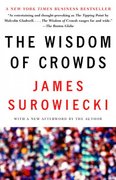Question
When Economist B eats at the buffet, he/she stops when the marginal utility of the last unit of food consumed equals zero.For Economist A, the
When Economist B eats at the buffet, he/she stops when the marginal utility of the last unit of food consumed equals zero.For Economist A, the individual is paying for each unit of food, so he/she stops eating when the marginal utility of the last dollar spent on food equals the marginal utility received from the last dollar spent on any other good or service.
Note that the high-end restaurant will be more likely to survive as it caters to a different clientele with higher income, while the buffet operates atlower profit marginsand is more vulnerable to a decline in business.
Suppose while eating Economist A notices that the drinks are way too overpriced, much more than at the bar she saw down the same block. She does enjoy having a few drinks at dinner. What do you think will be her thoughts on this? Should she skip the drink at the restaurant and use the money to go to the bar down the block to have a few drinks there? Why or why not? Can you explain this with economic reasoning?
Now, I want you to think about a significantexplicitbenefit that she might have had as a teacher and is not being figured in here. When you find it, put it a realistic value for it and recalculate the economic or accounting profit. See what the outcome is.
Step by Step Solution
There are 3 Steps involved in it
Step: 1

Get Instant Access to Expert-Tailored Solutions
See step-by-step solutions with expert insights and AI powered tools for academic success
Step: 2

Step: 3

Ace Your Homework with AI
Get the answers you need in no time with our AI-driven, step-by-step assistance
Get Started


